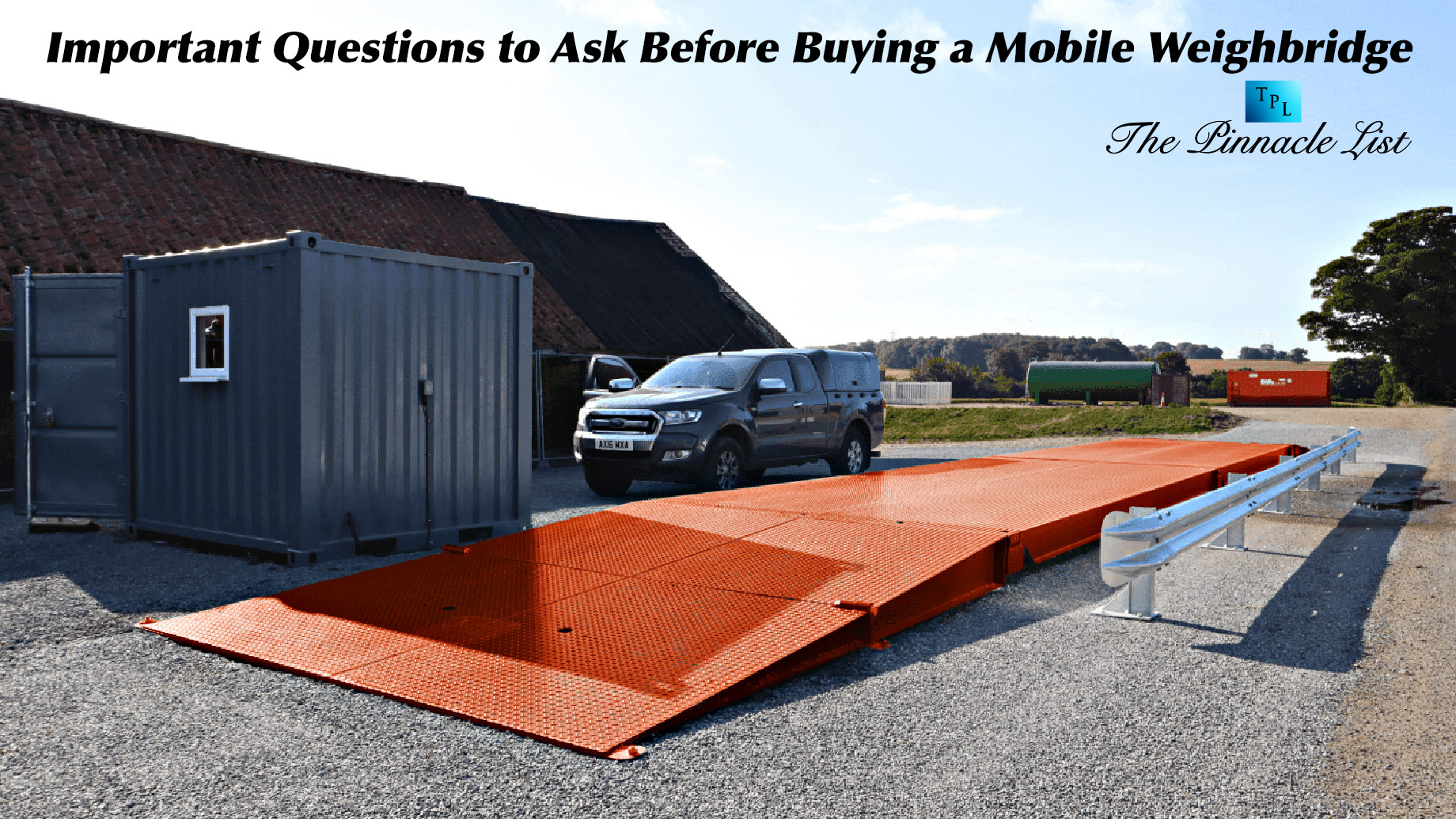
Transport logistics, agriculture, construction—no matter your industry, precise weight measurement is crucial. A reliable weighbridge can significantly streamline operations, enhance accuracy, and boost productivity. If your business is mobile or operates across multiple sites, investing in a mobile weighbridge might be the ideal solution. But before making your purchase, consider these essential questions to ensure the right fit for your unique needs.
1. How Portable Does It Need to Be?
Not all mobile weighbridges offer the same level of portability. Some models are designed for quick setup and takedown, ideal for industries like agriculture where weighing is seasonal. While technically “mobile,” others may require more effort and equipment to move. If your operations involve frequent relocation, make sure to choose a model with built-in features like integrated wheels or lightweight materials. Look for one that allows you to shift from site to site without hours of dismantling and reassembly.
2. Does It Handle Your Vehicle Types and Weight Limits?
Every business has different vehicle sizes and payloads to weigh. Are your vehicles heavy-duty trucks, light vans, or something in between? Your mobile weighbridge should be capable of accurately weighing all axles and accommodating the heaviest loads you’ll encounter for safety and compliance, as an overloaded truck can lead to costly penalties and road risks.
3. Is Wireless Communication Important?
Think about how you monitor weight data. Do you want instant readings sent to a remote device, or are you fine with manually checking an indicator? Many systems now have wireless options, transmitting data to a control terminal or mobile app. This can save time, especially if you’re running multiple weighing stations across a large site. Additionally, digital integration can make it easier to log records for audits or regulatory inspections.
4. What Are the Space and Installation Requirements?
You might think a mobile weighbridge doesn’t need much room, but the reality can vary. You’ll still need space for vehicle access, axle positioning, and levelling pads to ensure accuracy. Some units are designed for tight spaces, while others may need more clearance. So, it’s worth double-checking how much ground you’ll need to clear to set things up.
5. What Accessories Can Improve Accuracy?
Weighing accuracy can be affected by uneven terrain or poor load distribution. Some suppliers offer levelling kits made from lightweight aluminium to ensure consistent measurements, especially on rough surfaces. Other accessories, like transport cases and printer-integrated indicators, can also streamline operations. While these extras might seem like optional luxuries, they often pay off in time saved and data reliability.
Find the Best Solution for Your Business
The right mobile weighbridge for your business should align with your workflow, site conditions, and long-term goals. To avoid costly mistakes and downtime, seeking advice tailored to your industry is always advisable. Reach out to experts who specialise in weighing equipment for laboratories and manufacturing companies to get the guidance you need. Contact a specialist today to make an informed choice.